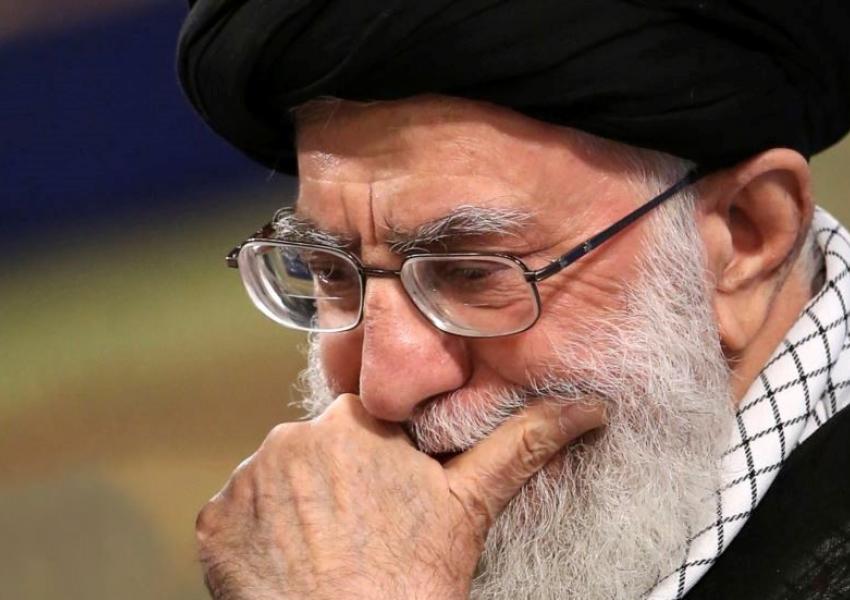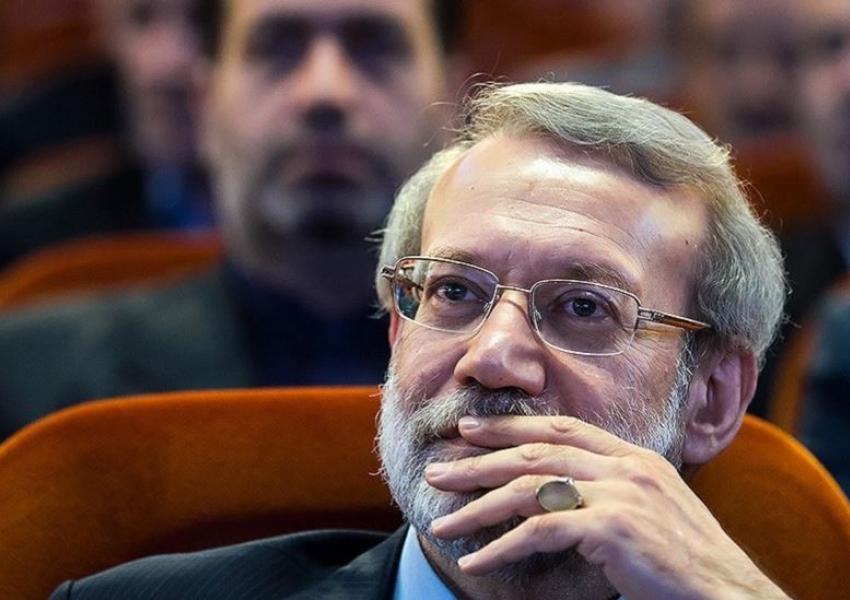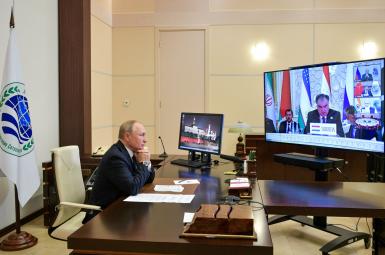
Khamenei’s Website In 'Final Say' Demands Lifting Of Sanctions
Iranian leader Ali Khamenei’s website has launched a portlet including interviews with current and former state officials on issues of sanctions, the economy and Iran’s nuclear program. The central concern is possible international talks to revive Tehran’s 2015 nuclear agreement with world powers, the JCPOA (Joint Comprehensive Plan of Action).
Among those interviewed are Khamenei’s foreign policy adviser Ali Akbar Velayati, Foreign Minister Mohammad Javad Zarif, former nuclear negotiator Saeed Jalili, Majles Speaker Mohammad Bagher Ghalibaf (Qalibaf), and former Majles Speaker and former nuclear negotiator Ali Larijani. An interview with Ali Akbar Salehi, head of the Atomic Energy Organization of Iran, is promised.
Velayati’s interview has become well-known for saying Iran would “do anything to get nuclear weapons.” But the common refrain is the importance of lifting sanctions.
The answer to why these interviews are disseminated now - and an authoritative outlet such as Khamenei’s website – lies in the headline at the top of Khamenei’s page on Thursday morning [January 14]: The Final Say.
Here, Ali Larijani rules out a “piecemeal solution” and insists that “sanctions should be lifted at once and all together.” Larijani suggests that the United States wants to make sure that Iran’s regional role and missile program are part of any international talks. But in diplomacy, you need leverage, argues Larijani, and it is pointless for Iran to do away with anything before starting talks. Larijani also argues that Iran should demand compensation for losses caused by the stringent economic sanctions imposed by the United States since President Donald Trump in 2018 withdrew the US from Iran’s 2015 nuclear deal with world powers.

Former Speaker of Iran's parliament, Ali Larijani.
Larijani – who led several rounds of nuclear negotiations with Europe between 2005 and 2007 – quotes Khamenei as saying that “the flag of negotiations” should never be put down and insists that Iran’s Supreme Leader “attaches high significance to consultation with others.”
“He [Khamenei] is a realistic man and at the same time he is an idealist,” says Larijani. “He does not like deadlocks. He always wants to leave a way out of the deadlock.”
Larijani stresses the importance of “the country’s economy….[and] interacting with other countries…and in order to maintain interaction, we need to have the sanctions lifted.” He criticizes those who think “closing the country’s doors” adds up to independence: “This is wrong. Being independent means that no one can bully you.”
Khamenei, who has last word on important matters of states, gave a speech in December where he said that seizing any opportunity to remove sanctions should not be delayed “even one hour” while also stressing the need for Iran to continue efforts to sidestep restrictions, efforts that have seen Iran increase oil exports in recent months. The portlet on Khamenei’s page reinforces this message of pragmatism.
Iran ruled out talks with the Trump administration after it left the JCPOA and imposed what the US called “the strongest sanctions in history” after Tehran refused a set of demands including ending all uranium enrichment, scrapping missile defense, and withdrawing all forces from Syria.
But with President-elect Joe Biden, who takes office on January 20, committed to reviving the JCPOA, Iranian President Hassan Rouhani has expressed Iran’s willingness to return its nuclear program to the limits of the JCPOA, reversing steps taken since 2019 following Trump’s abandonment of the agreement.
Biden was vice-president under President Barack Obama when the JCPOA was signed, and his choice as National Security Advisor Jake Sullivan played a role in back-channel talks with Iran in Oman from 2012 that led up to the JCPOA.
While Biden and Rouhani have presented reviving the JCPOA as relatively straightforward there are voices – in the US, in Iran, and elsewhere – arguing that the deal should be extended or have new conditions imposed. The head of International Atomic Energy Agency, Rafael Mariano Grossi, called this week [January 11] for JCPOA signatories – Iran, the US, Russia, China, Britain, France, and Germany – to agree a procedure and timetable to revive the deal, which he said was a matter of weeks, not “many months.”





